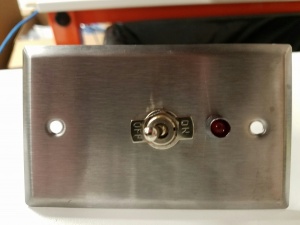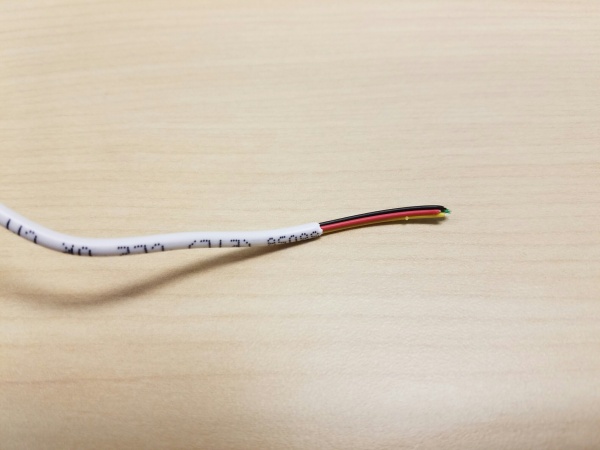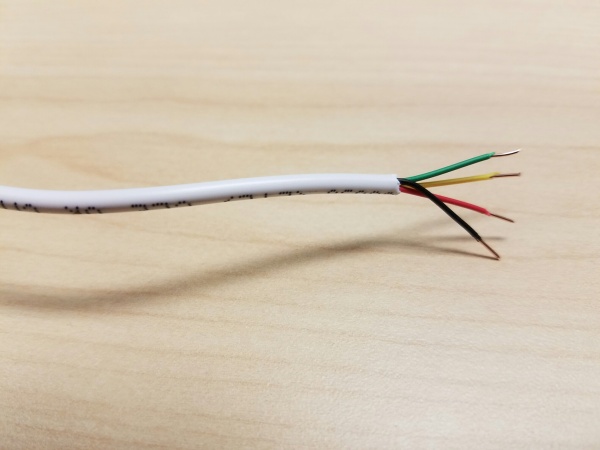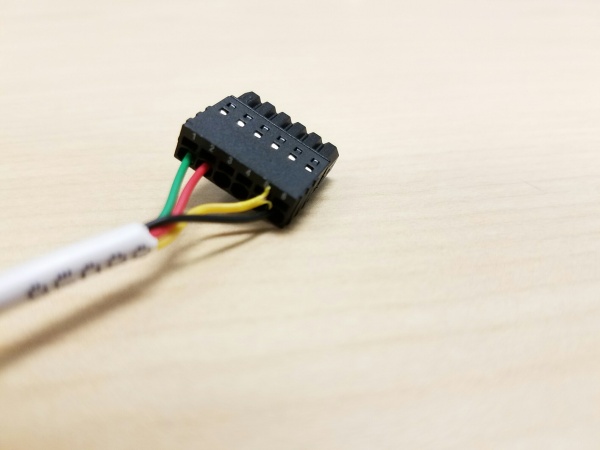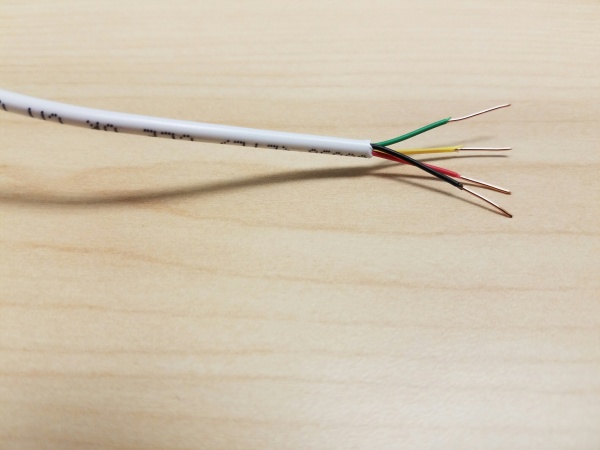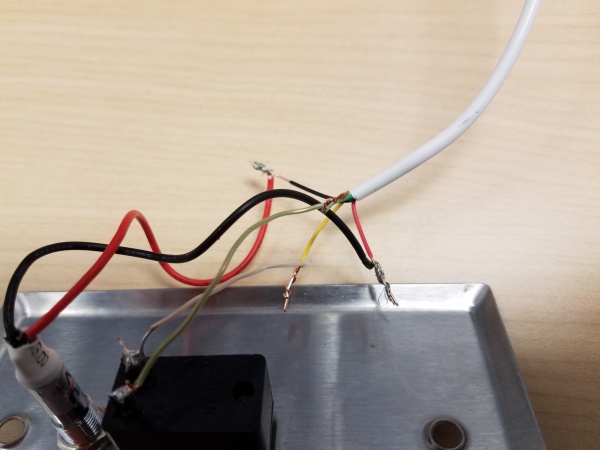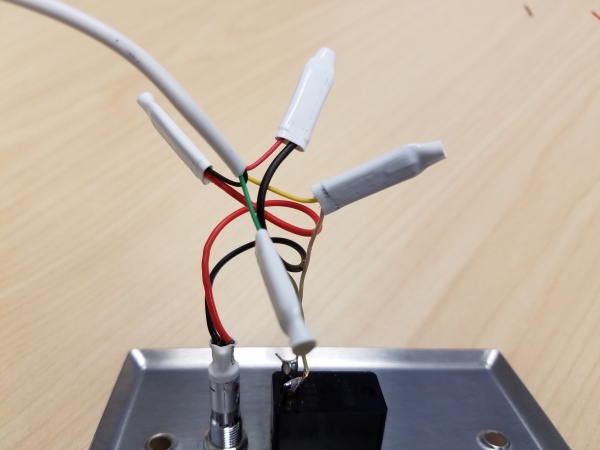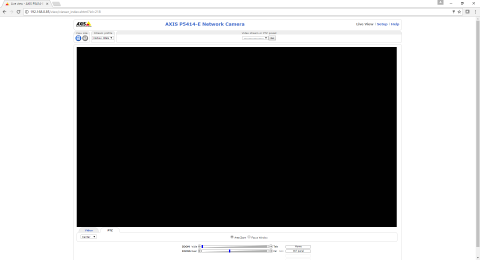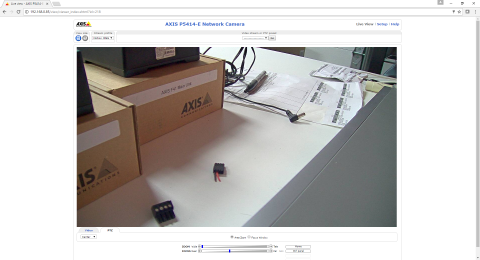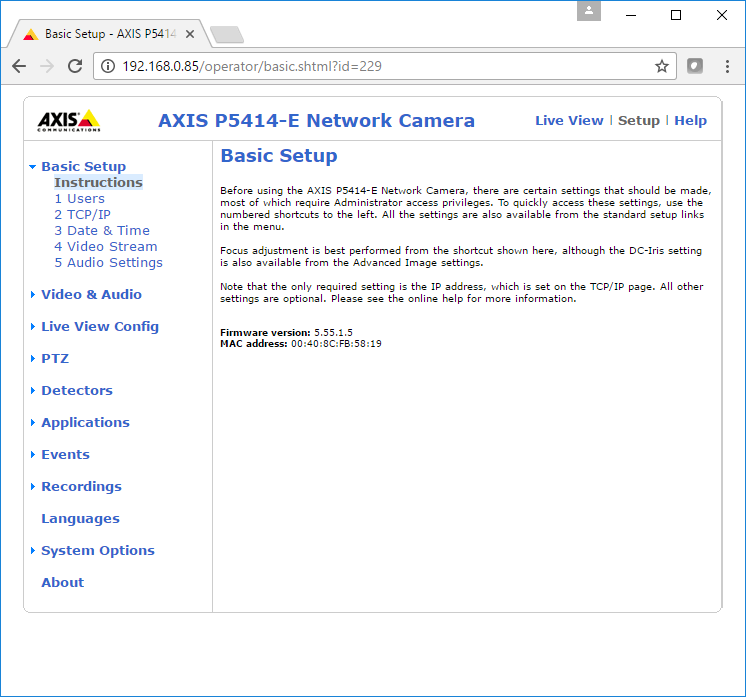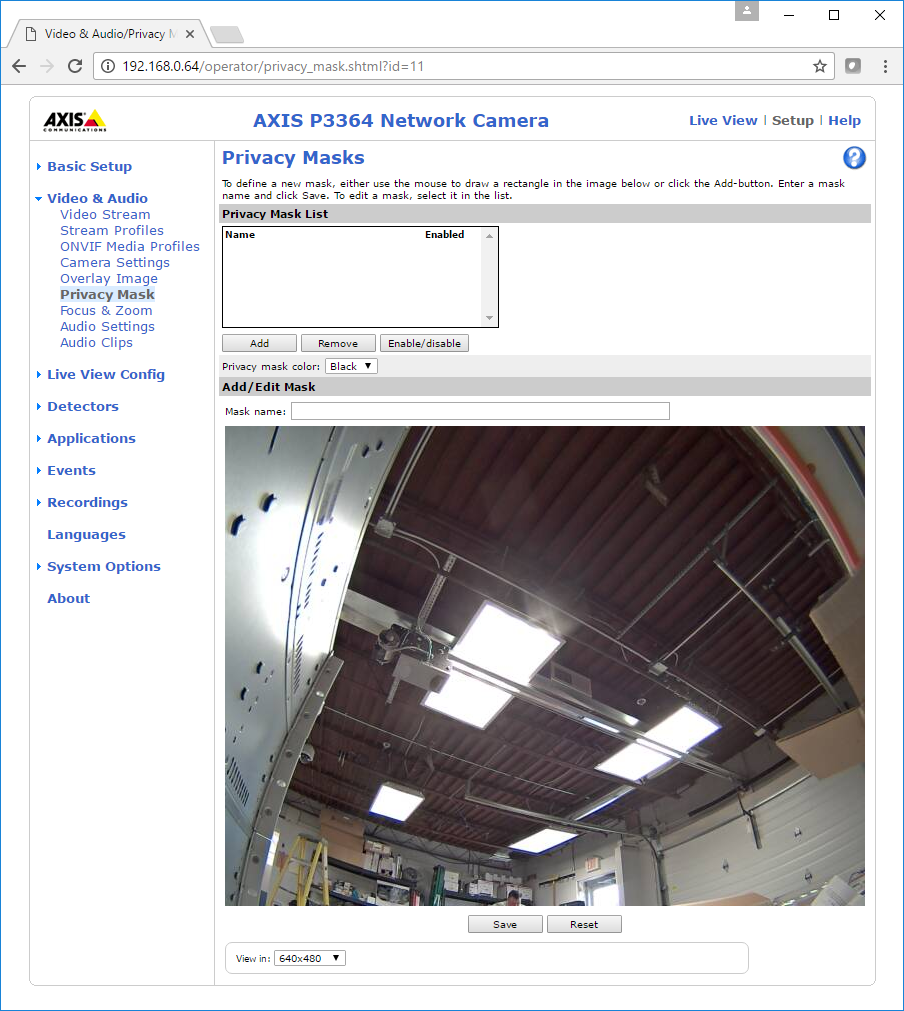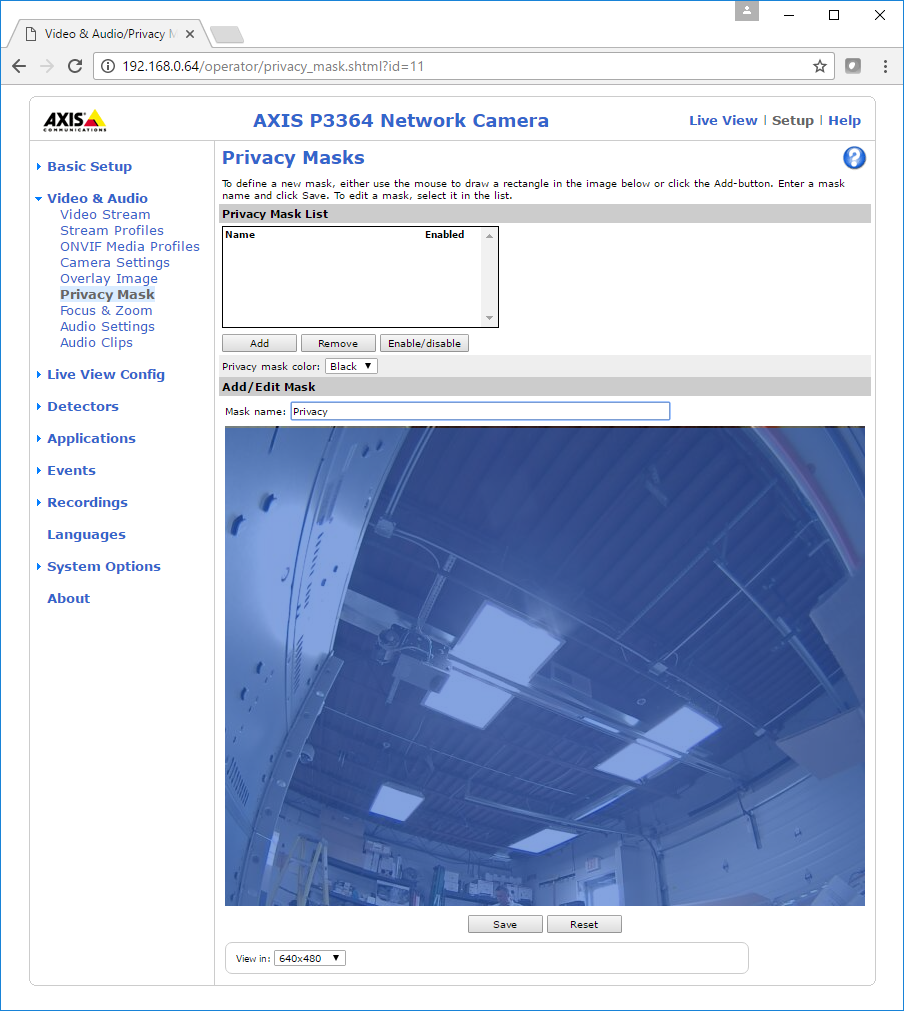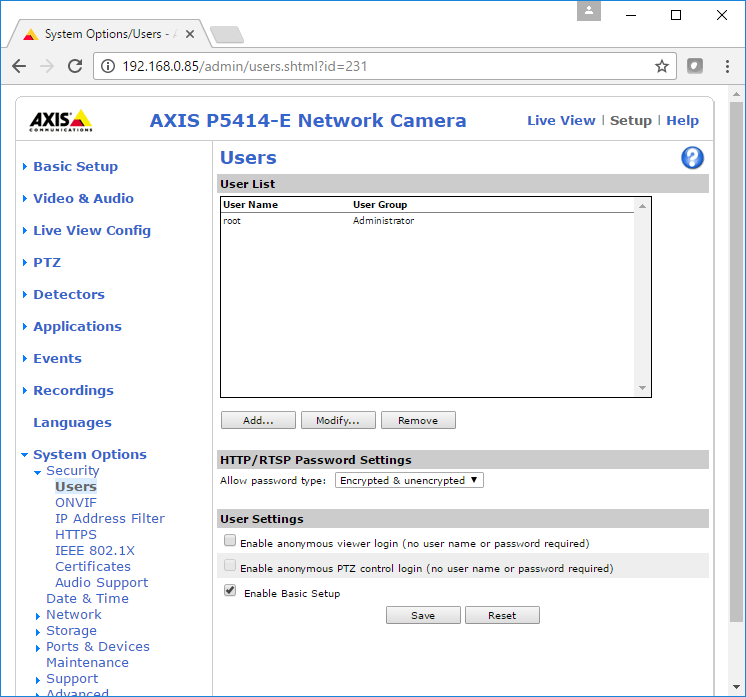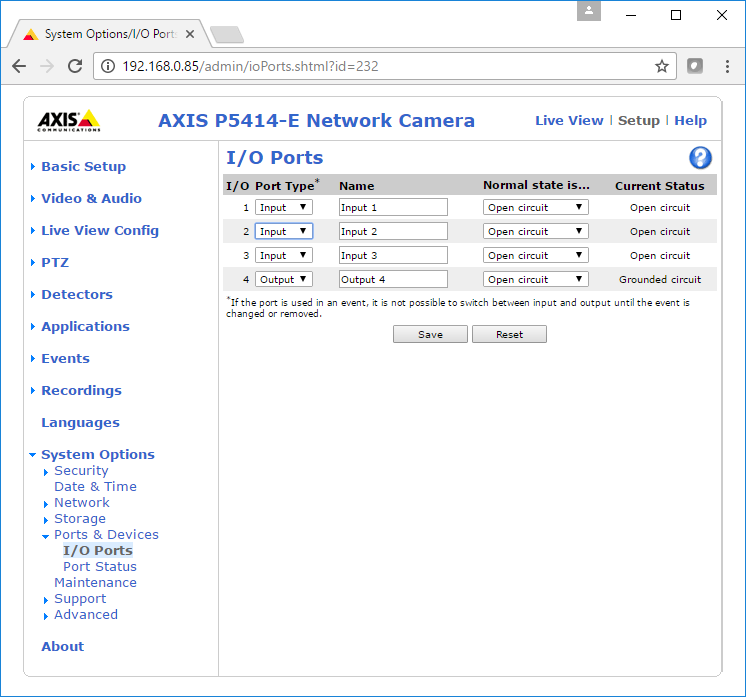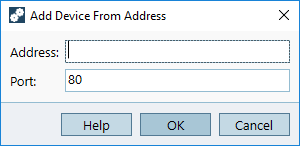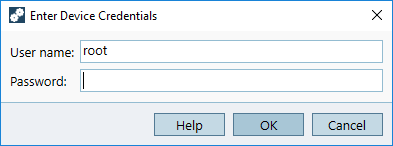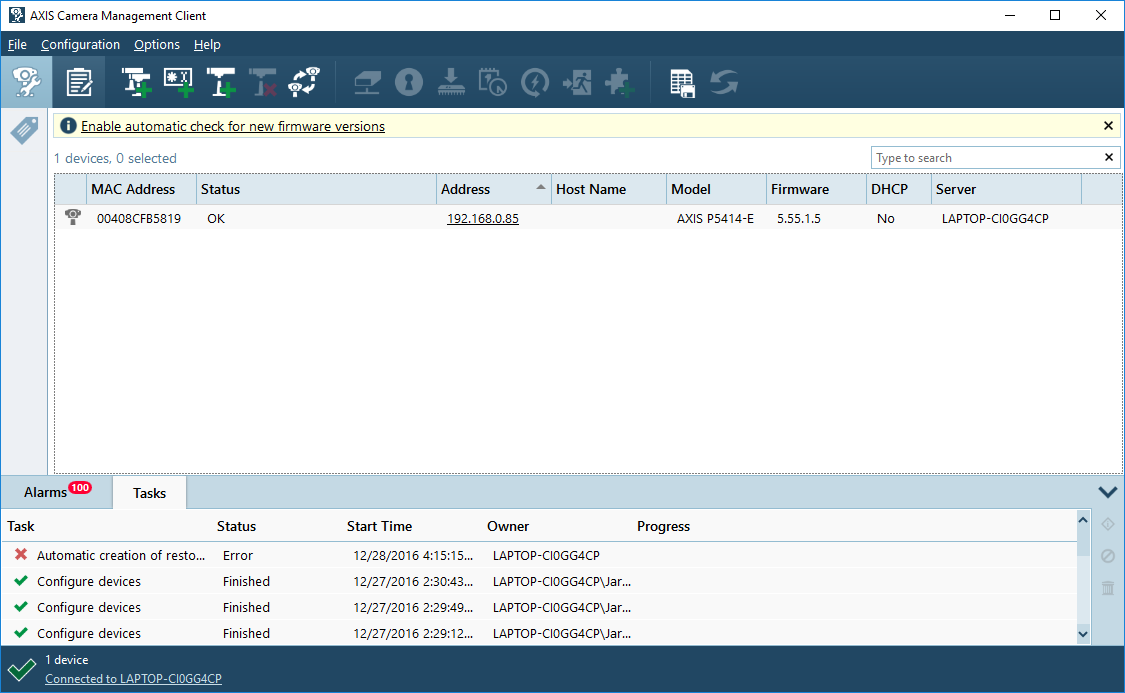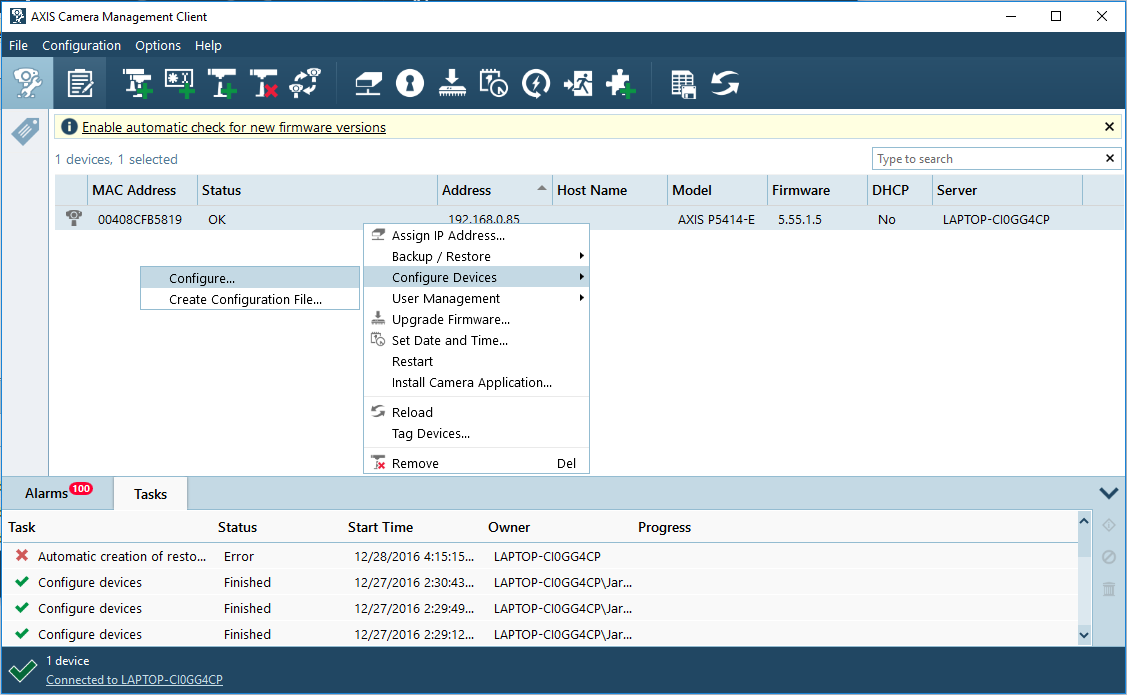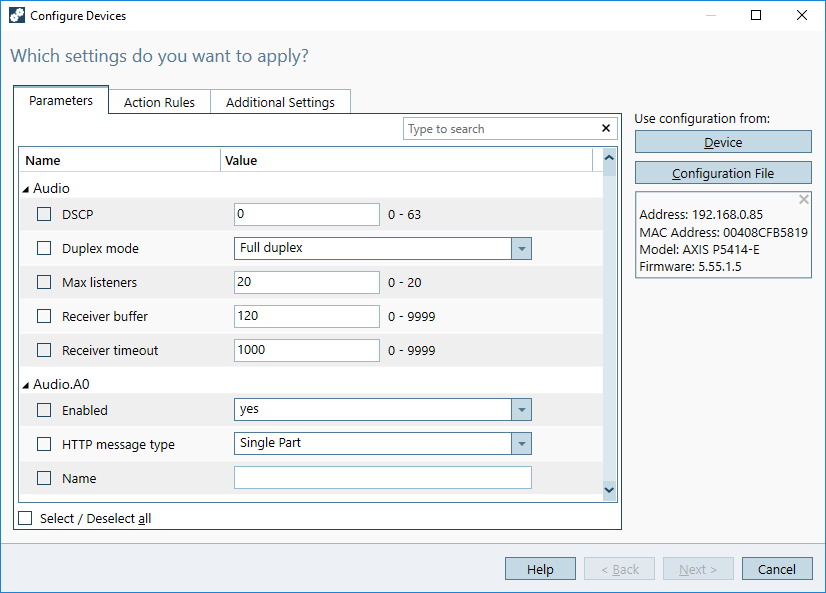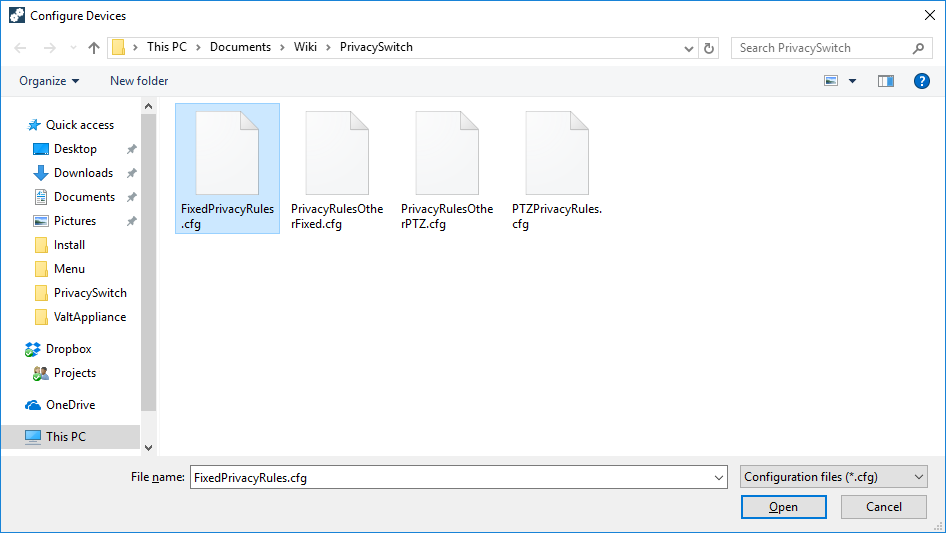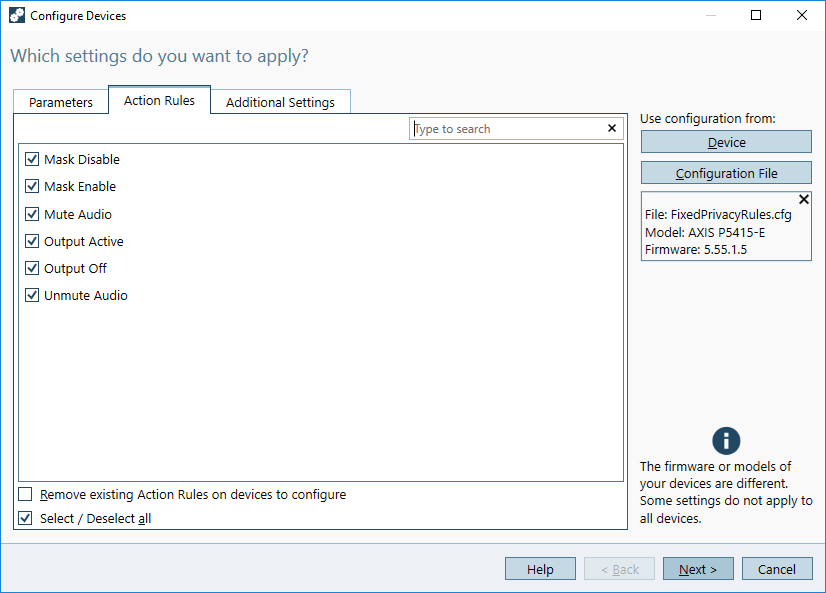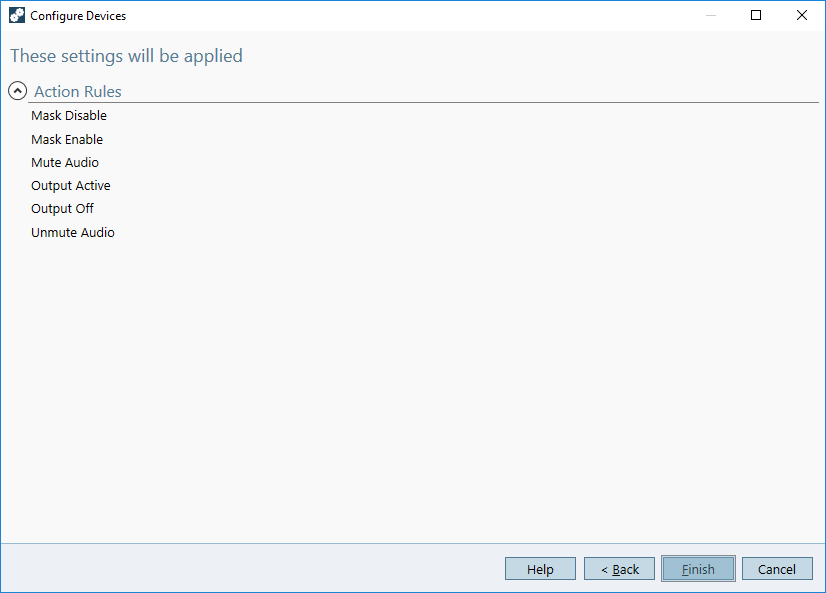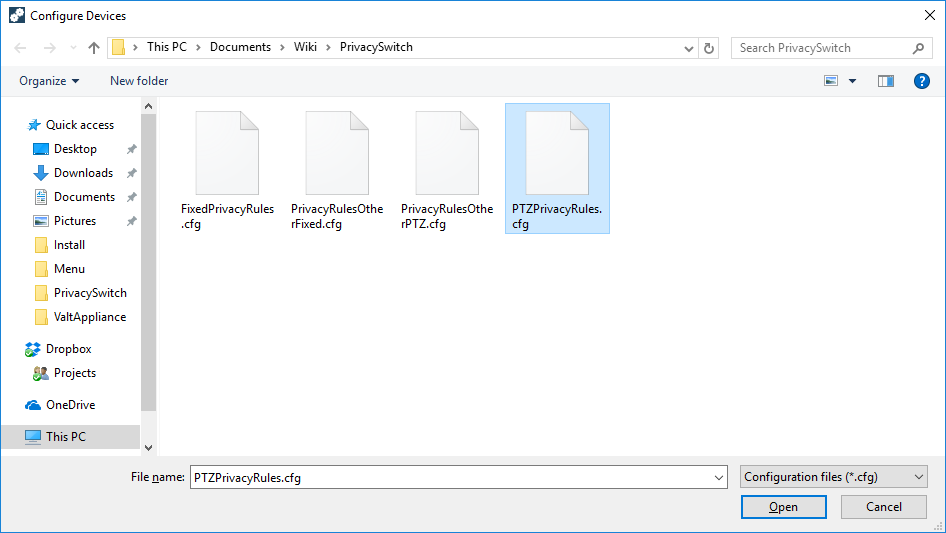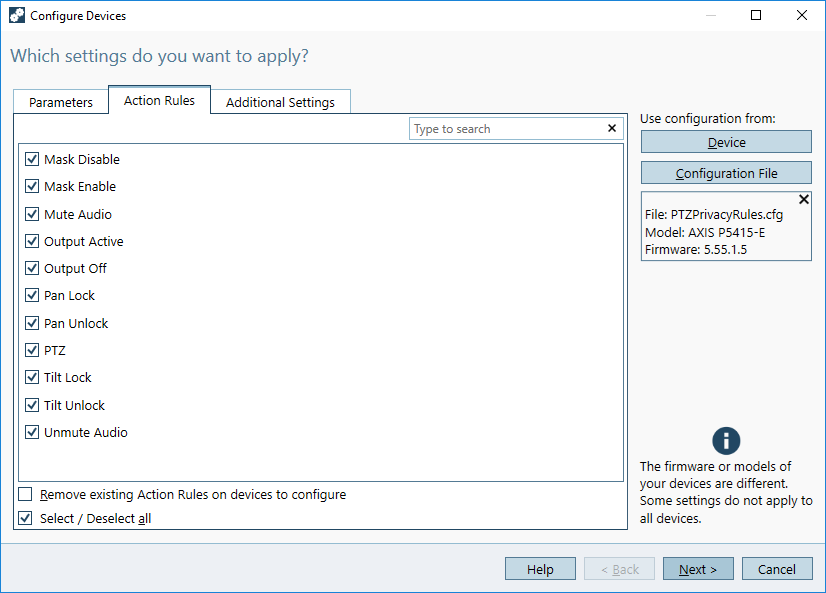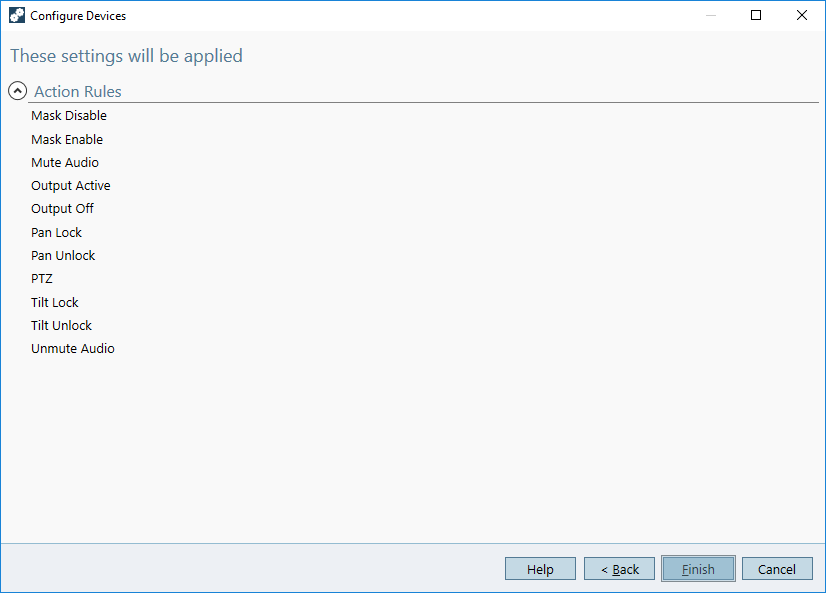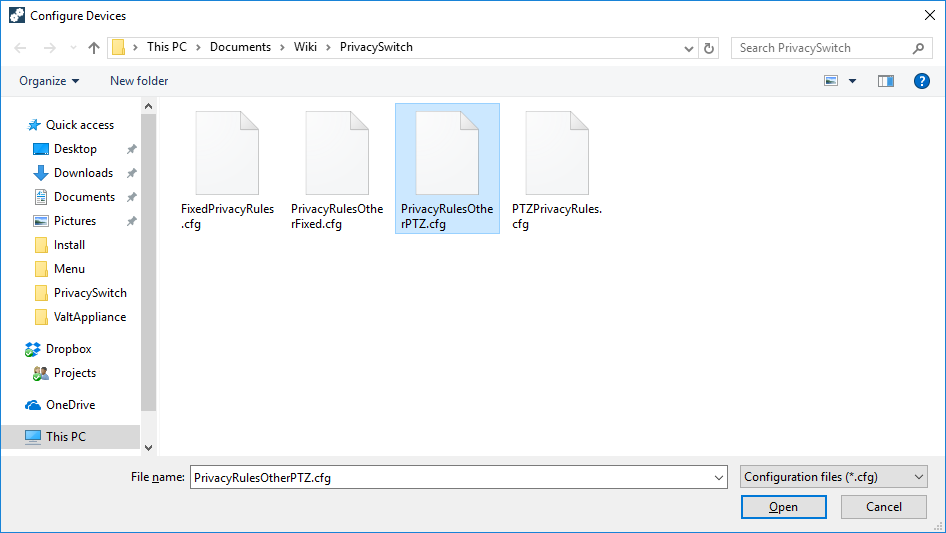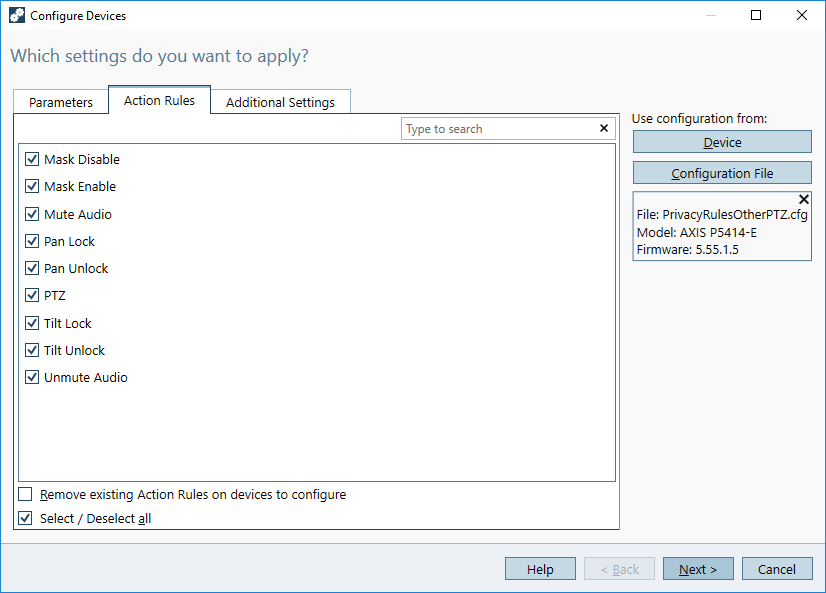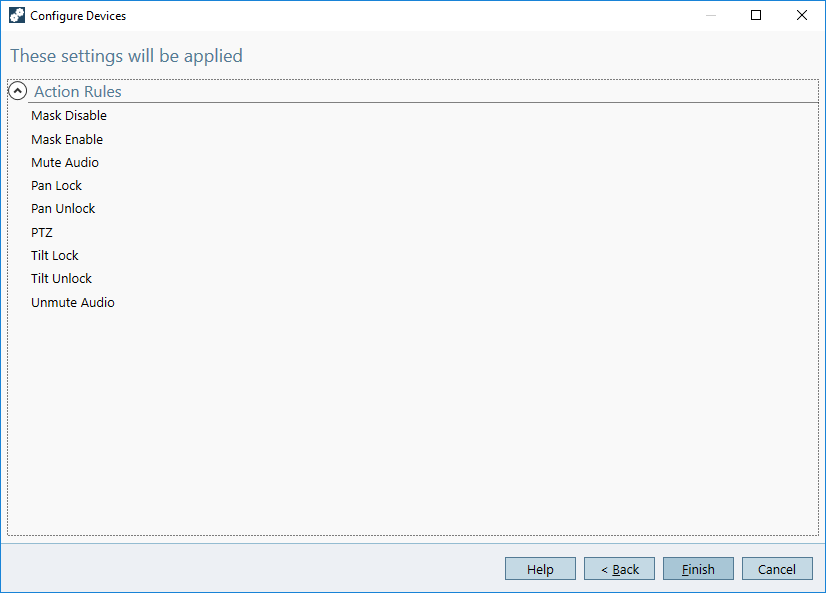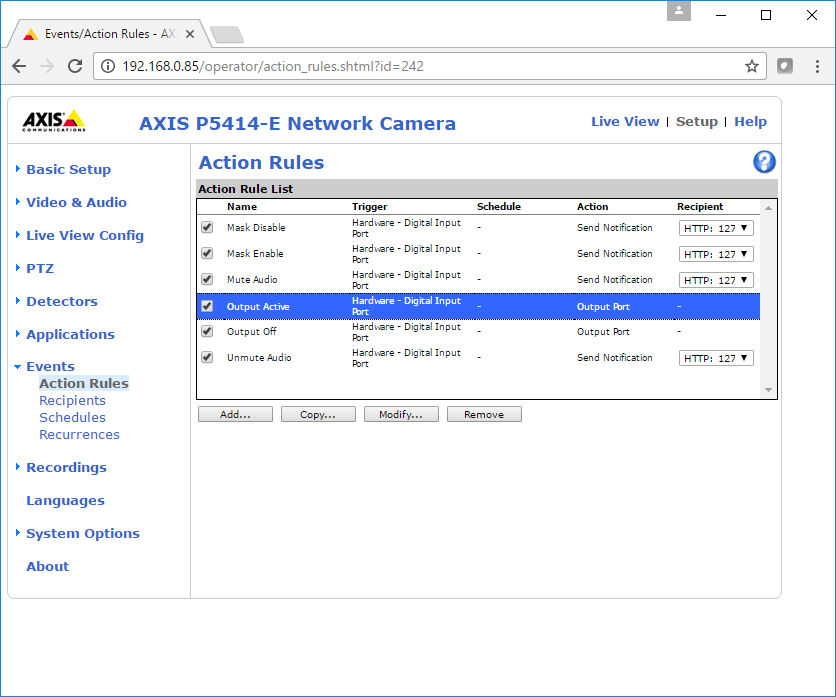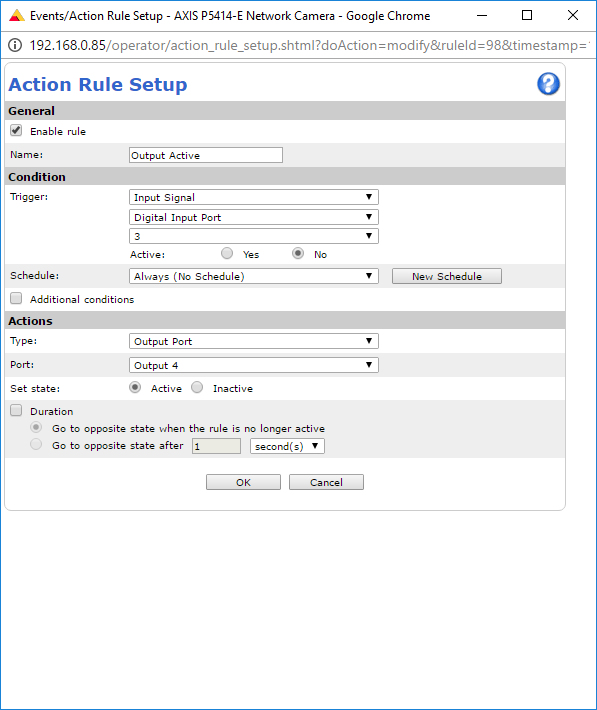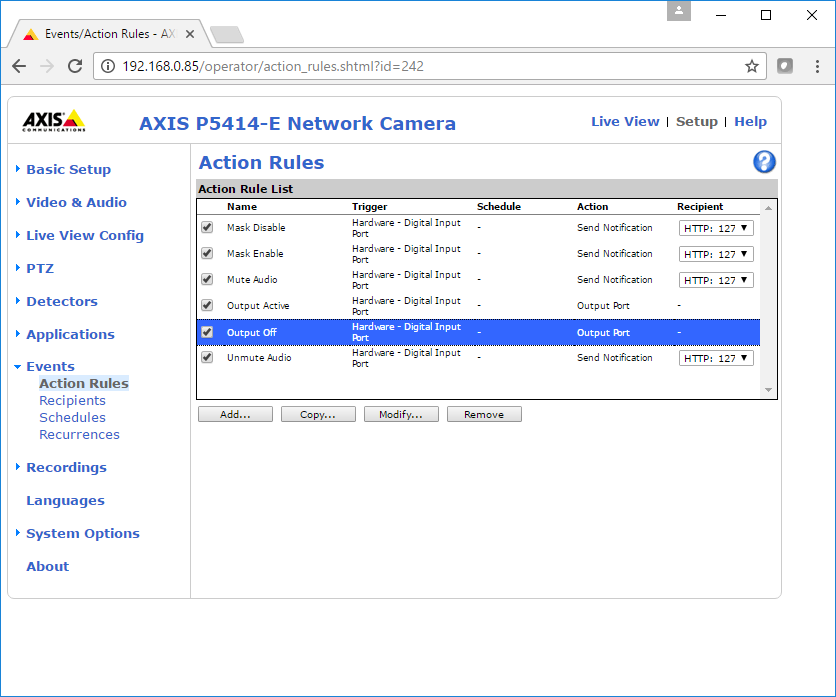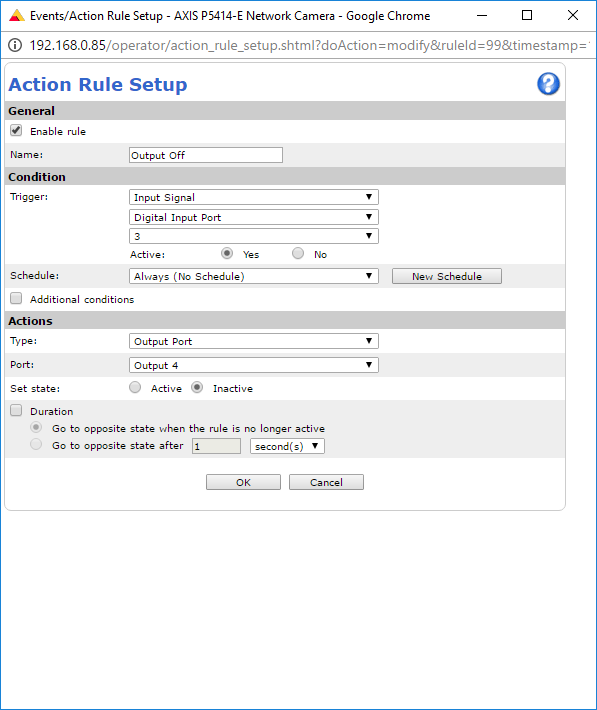Privacy Switch
Contents
Overview
The privacy switch is a customizable solution for placing the cameras connected to the Valt system in privacy mode. The instructions below will outline how to configure a privacy switch that will stay illuminated while the switch is in the off position. Flipping the switch to the on position will extinguish the light and engage privacy mode. The switch and LED are independent and the behavior can be customized. See the variations section at the bottom of this article for more information.
These instruction are written for use with a camera with 4 IO ports. Port 1 and 2 are reserved for use with the Valt Recording Start/Stop button.
Compatible Cameras
The privacy switch should be usable with any axis camera with at least one free input and one free output. The Camera must be running firmware version 5.50 or higher. To use with a camera that does not have 4 I/O ports, you will need to adjust the event rules.
- Axis P5514
- Axis P5515
- Axis P5414
- Axis P5415
- Axis F41
- Axis P3364
Required Parts and Tools
- Single Pole Single Throw Switch
- LED (Instead of an LED you can use an illuminated switch, but it must be independent)
- Mud Ring or Single Gang Box
- Face Plate
- Wire Cutters/Strippers
- 22/4 solid unshielded plenum
Installation
- Cut a hole in the wall where the privacy switch will be mounted.
- Insert the mud ring into the hole and attach it.
- Run 22/4 from the camera to the hole.
- Strip the outer insulation from both ends of the 22/4.
- Strip approximately 1/4 inch of insulation off of each wire in the 22/4 on the camera side
- Insert the wires into the IO connector on the camera according to the chart below.
- Strip approximately 1/2 inch of insulation off each wire in the 22/4 on the switch side.
- Splice the wires to the switch according to the chart below.
- Attach the switch to the mud ring.
Wiring Map
I/O Privacy Switch Phoenix Connector Switch Pin 1 + Pin 2 Switch Pin 5 - Pin 6
Configuration
Prior to configuring the cameras for use with the privacy switch, make sure that the cameras have already been set up with a valid IP address and are configured according to Valt specifications.
Fixed Camera
Configure Camera
Set Privacy Mask
Via API
If the following steps produce an error or fail to create a mask, the mask can be configured via the web interface.
- Open a web browser
- Copy and paste the following link into the address bar. Replace ipaddress with the ip address of your camera.
- http://ipaddress/axis-cgi/privacymask.cgi?action=add&name=mask1&width=100&height=100
- Press enter to submit the address
- The mask should now be created. You can verify this by browsing to the IP address of the camera. The live view should show a black screen.
- Copy and paste the following link into the address bar. Replace ipaddress with the ip address of your camera.
- http://ipaddress/axis-cgi/param.cgi?action=update&Image.I0.Overlay.MaskWindows.M0.Enabled=no
- This should disable the mask you created. You can verify this by browsing to the ip address of the camera. The live view should show a live view from the camera.
Via Web Interface
Perform these steps only if configuring the mask via API fails.
- Open a web browser
- Navigate to the IP address of the camera.
- If prompted enter the username and password for the camera.
- Click on Setup in the upper right hand corner of the window.
- Click on Video & Audio.
- Click on Privacy Masks
- Click Add
- Enter Privacy in the Mask name field.
- Expand the blue box using your mouse until it covers the entire image
- Click Save
- Click on the Privacy mask you just created
- Click Enable/disable
I/O Ports
- Open a web browser
- Navigate to the IP address of the camera.
- If prompted enter the username and password for the camera.
- Click on Setup in the upper right hand corner of the window.
- Click on System Options.
- Click on Ports & Devices
- Change I/O Port 4 to Output
- Click Save
Load Rules
- Download the camera rules using the links below.
- Open Access Camera Management
- Click on the Add Camera from Address icon.
- Enter the IP address of the camera
- Click OK
- Enter the username and password for the camera.
- Click OK
- The camera should now appear in your list of devices.
- Right click on the camera and select Configure Devices, Configure from the menu.
- Click the Configuration File button.
- Browse to where you saved the configuration file and select it.
- Click Open
- Click the Action Rules tab
- Click Next
- Click Finish
- When the rules have successfully loaded you will receive a message at the bottom of the window.
PTZ Camera
Configure Camera
Set Privacy Location
- Open a web browser
- Copy and paste the following link into the address bar. Replace ipaddress with the ip address of your camera.
- http://ipaddress/axis-cgi/com/ptzconfig.cgi?setserverpresetname=Privacy&home=yes
- Press enter to submit the address
Set Privacy Mask
- Open a web browser
- Copy and paste the following link into the address bar. Replace ipaddress with the ip address of your camera.
- http://ipaddress/axis-cgi/privacymask.cgi?action=add&name=mask1&width=100&height=100
- Press enter to submit the address
- The mask should now be created. You can verify this by browsing to the IP address of the camera. The live view should show a black screen.
- Copy and paste the following link into the address bar. Replace ipaddress with the ip address of your camera.
- http://ipaddress/axis-cgi/param.cgi?action=update&Image.I0.Overlay.MaskWindows.M0.Enabled=no
- This should disable the mask you created. You can verify this by browsing to the ip address of the camera. The live view should show a live view from the camera.
I/O Ports
- Open a web browser
- Navigate to the IP address of the camera.
- If prompted enter the username and password for the camera.
- Click on Setup in the upper right hand corner of the window.
- Click on System Options.
- Click on Ports & Devices
- Change I/O Port 4 to Output
- Click Save
Load Rules
- Download the camera rules using the links below.
- Open Access Camera Management
- Click on the Add Camera from Address icon.
- Enter the IP address of the camera
- Click OK
- Enter the username and password for the camera.
- Click OK
- The camera should now appear in your list of devices.
- Right click on the camera and select Configure Devices, Configure from the menu.
- Click the Configuration File button.
- Browse to where you saved the configuration file and select it.
- Click Open
- Click the Action Rules tab
- Click Next
- Click Finish
- When the rules have successfully loaded you will receive a message at the bottom of the window.
Multiple Cameras
A single privacy switch can be used to trigger privacy mode on multiple cameras. In order to accomplish this, each camera must be configured and then rules must be created in the camera attached to the switch to trigger privacy mode on the other cameras. These rules are similar to the rules used with the primary camera, but vary slightly. Follow the steps below for each additional camera that you wish to include on the privacy switch.
Configure Additional Camera
Fixed Camera
Set Privacy Mask
- Open a web browser
- Copy and paste the following link into the address bar. Replace ipaddress with the ip address of your camera.
- http://ipaddress/axis-cgi/privacymask.cgi?action=add&name=mask1&width=100&height=100
- Press enter to submit the address
- The mask should now be created. You can verify this by browsing to the IP address of the camera. The live view should show a black screen.
- Copy and paste the following link into the address bar. Replace ipaddress with the ip address of your camera.
- http://ipaddress/axis-cgi/param.cgi?action=update&Image.I0.Overlay.MaskWindows.M0.Enabled=no
- This should disable the mask you created. You can verify this by browsing to the ip address of the camera. The live view should show a live view from the camera.
PTZ Camera
Set Privacy Location
- Open a web browser
- Copy and paste the following link into the address bar. Replace ipaddress with the ip address of your camera.
- http://ipaddress/axis-cgi/com/ptzconfig.cgi?setserverpresetname=Privacy&home=yes
- Press enter to submit the address
Set Privacy Mask
- Open a web browser
- Copy and paste the following link into the address bar. Replace ipaddress with the ip address of your camera.
- http://ipaddress/axis-cgi/privacymask.cgi?action=add&name=mask1&width=100&height=100
- Press enter to submit the address
- The mask should now be created. You can verify this by browsing to the IP address of the camera. The live view should show a black screen.
- Copy and paste the following link into the address bar. Replace ipaddress with the ip address of your camera.
- http://ipaddress/axis-cgi/param.cgi?action=update&Image.I0.Overlay.MaskWindows.M0.Enabled=no
- This should disable the mask you created. You can verify this by browsing to the ip address of the camera. The live view should show a live view from the camera.
Primary Camera Rules
The following steps must be completed on the camera that the switch is connected to.
- Download the camera rules using the links below.
- Open the rules in a text editor
- Find and replace all instances of the below IP address with the IP address of your additional camera.
- Fixed: 192.168.0.64
- PTZ: 192.168.0.151
- Save your changes.
- Open Access Camera Management
- Click on the Add Camera from Address icon.
- Enter the IP address of the camera
- Click OK
- Enter the username and password for the camera.
- Click OK
- The camera should now appear in your list of devices.
- Right click on the camera and select Configure Devices, Configure from the menu.
- Click the Configuration File button.
- Browse to where you saved the configuration file and select it.
- Click Open
- Click the Action Rules tab
- Click Next
- Click Finish
- When the rules have successfully loaded you will receive a message at the bottom of the window.
Variations
LED Lit to Show Privacy Mode Engaged
This variation can be accomplished by reversing the triggers on the output rules.
- Configure the cameras and load the rules as outlined above.
- Open a web browser
- Navigate to the IP address of the primary camera.
- If prompted enter the username and password for the camera.
- Click on Setup in the upper right hand corner of the window.
- Click on Events.
- Click on the Output Active rule
- Click Modify
- Under trigger conditions, change Active from No to Yes
- Click OK
- Click on the Output Off Rule
- Click Modify
- Under trigger conditions, change Active from Yes to No
- Click OK
Privacy Mode Engaged by Flipping Switch Off
This variation can be accomplished by reversing the triggers on all rules.
- Configure the cameras and load the rules as outlined above.
- Open a web browser
- Navigate to the IP address of the primary camera.
- If prompted enter the username and password for the camera.
- Click on Setup in the upper right hand corner of the window.
- Click on Events.
- Click on the first rule
- Click Modify
- Under trigger conditions reverse the Active condition.
- If currently set to Yes, change to No
- If currently set to No, change to Yes
- Click OK
- Repeat this process for every rule.
